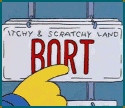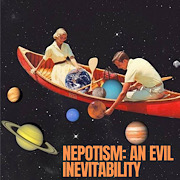|
Tulip posted:There's pretty significant disagreement, not helped by the fact that the earliest cities predate writing. Depending on your agenda there's a few things that come to my mind as major factors for early cities in no real order: Donít forget boat building, in Egypt and Mesopotamia that was a major way to transport goods and people.
|
|
|
|

|
| # ? Apr 26, 2024 14:13 |
|
If you want to learn about the technologies involved in very early sedentary lifestyles in the near east I would recommend the wikipedia article on Gobekli Tepe. No evidence of domestication has been found in the earliest layers, suggesting settlement predated agriculture. It also predated pottery. It seems the only new technology (someone please correct me if I'm wrong on this) is large scale stone working. The archeologist Klaus Schmidt considered it a cultic location and said "First came the temple, then the city." https://en.m.wikipedia.org/wiki/G%C3%B6bekli_Tepe
|
|
|
|
I did not expect so many replies, thank you everyone! I would normally quote the replies but that would be a lot of quoting!
|
|
|
|
I remember reading a thing a while back on some precolumbian South American societies that apparently managed to live sedentary lives as primarily foraging societies rather than relying on agriculture, but I can't remember any details. Worth noting that even fully agricultural societies still did a lot of regular foraging in the wilderness, and there's a lot of grey area between a society being sedentary and nomadic. Some places will regularly have a lot of their people spend long periods away from home, sometimes a lot of people from a city will just leave to start off on their own sometime, sometimes disasters or other pressures may push a society to just try to entirely relocate. Many nomadic societies may often return to the same sites to encamp again and again. We also know of nomadic groups within settled societies that go around as temporary workers, and I don't know how far back those go. I can imagine a small nomadic group coming through an agricultural society to help with the harvest and whoop it up for a while before going on their way. Also a lot of work went into developing more viable and high-yield crops for agriculture, while it's not as obvious as how drastically animal domestication created new species designed for human use.
|
|
|
|
SlothfulCobra posted:I remember reading a thing a while back on some precolumbian South American societies that apparently managed to live sedentary lives as primarily foraging societies rather than relying on agriculture, but I can't remember any details. These were all along the west coast, particularly Peru. That area has maybe the richest fishing grounds in the world, the early Peruvian civilizations did farm but they didn't need much. The Norte Chico people had a lot of cotton agriculture to make fishing nets.
|
|
|
|
SlothfulCobra posted:Worth noting that even fully agricultural societies still did a lot of regular foraging in the wilderness, and there's a lot of grey area between a society being sedentary and nomadic. Some places will regularly have a lot of their people spend long periods away from home, sometimes a lot of people from a city will just leave to start off on their own sometime, sometimes disasters or other pressures may push a society to just try to entirely relocate. Many nomadic societies may often return to the same sites to encamp again and again. We also know of nomadic groups within settled societies that go around as temporary workers, and I don't know how far back those go. I can imagine a small nomadic group coming through an agricultural society to help with the harvest and whoop it up for a while before going on their way. For sure, one of the great things I like in Six Ages was that you had a variety of dieties and strategies for integrating agriculture, pastoralism, and foraging into your food strategies, which all had different meanings for how you played the game. An important subcomponent of this is transhumance, which is is one of the more fascinating parts of a social integration. If you're unfamiliar, transhumance is the practice of migratory herding that overlaps with sedentary agrarian lands, most frequently by having a herd that has winter vs summer grazing lands. For example, cows spending summers in the Alps and then coming down into the lowlands during the winter. This has some amount of symbiosis, as the cows provide some pretty significant fertilizer for the lands they walk through on top of the simple fact that farmers and herders produce different trade goods for exchange (meat, cheese, leather, wool vs grains, vegetables, flax), but unsurprisingly can be a pretty tense set of relationships as transhumance doesn't play well with nation-state borders and either group can really gently caress over the other.
|
|
|
|
SlothfulCobra posted:We also know of nomadic groups within settled societies that go around as temporary workers, and I don't know how far back those go. I can imagine a small nomadic group coming through an agricultural society to help with the harvest and whoop it up for a while before going on their way. This is still the case in the current world. Much of the physical labor on farms across the USA, for example, is done by migrant people who move along elsewhere following harvests.
|
|
|
|
Tulip posted:but unsurprisingly can be a pretty tense set of relationships as transhumance doesn't play well with nation-state borders and either group can really gently caress over the other. Do the cows being herded across the Mexican border constantly count? https://www.npr.org/sections/money/2018/11/09/666372072/episode-875-why-did-the-cow-cross-the-border
|
|
|
|
Tulip posted:but unsurprisingly can be a pretty tense set of relationships as transhumance doesn't play well with nation-state borders and either group can really gently caress over the other. Yeah IIRC this was a big thing when colonial powers started drawing borders in offices back in Belgium without regards to what was actually on the ground. All of a sudden traditional migration patterns were disrupted when these invisible borders started being enforced.
|
|
|
|
SlothfulCobra posted:Do the cows being herded across the Mexican border constantly count? Probably? It's kind of embarrassing how little I know about Mexico as an American. sullat posted:Yeah IIRC this was a big thing when colonial powers started drawing borders in offices back in Belgium without regards to what was actually on the ground. All of a sudden traditional migration patterns were disrupted when these invisible borders started being enforced. Yeah, this was a big feature of problems the Tutsi faced in the last several decades - their traditional economic form is herding cows across multiple different border regions in central Africa, which depending on the political climate gives them lots of friends or lots of enemies. And the transhumance lifestyles of the Balkans got completely obliterated by the rise of nationalism, both because regular migratory patterns now violated state boundaries and also those states kept going to war with each other. And I guess this is where it's worth remembering that there's a difference between drawing a border and enforcing a border. Depending on where, when, and who, a border can vary between "a very rough suggestion" to "we will literally kill you if you step over this line."
|
|
|
|

|
|
|
|
and people think the toilet brush is for scrubbing the toilet
|
|
|
|

|
|
|
|
SlothfulCobra posted:Do the cows being herded across the Mexican border constantly count? Hell, Mexican migrant farm workers make up the skilled labor pool of farms in the US. The "farmers" could not manage without them. And their employers do everything in their power to relegate them as second class "illegal" citizens lest they agitate for better working conditoins.
|
|
|
|
Phobophilia posted:Hell, Mexican migrant farm workers make up the skilled labor pool of farms in the US. The "farmers" could not manage without them. And their employers do everything in their power to relegate them as second class "illegal" citizens lest they agitate for better working conditoins. Occasionally they're a little too successful and their crops rot in the fields until they manage to pull back a little.
|
|
|
|
I think the idea that agriculture was adopted mostly or in part because mankind had a taste for booze is probably so popular because it's quirky and interesting, I don't find it that plausible. It seems more likely to me that it happened (in the Near East) the way it's described in the first chapter of Europe's First Farmers: An Evolutionary Perspective, where certain populations became sedentary, this led to population growth which necessitated exploitation of more labor intensive resources, the groups then became increasingly dependent on harvesting and cultivating wild grasses, then in a very long process these plants were domesticated, possibly without any conscious effort on the part of the cultivators for the first thousands of year. Further population growth ensued until this lifestyle turned into a necessity. Some groups experimented with trapping and hemming in wild animals to provide a dependable source of meat, probably without any "plan" to domesticate them. Pigs apparently may have come into human settlements by their own accord looking for food. All of this was accomplished by different groups living around the fertile crescent who were in contact with one another, and eventually domesticated plants and animals were brought together in a "package" that people brought with them as they spread into new areas. Just a lot of short term decisions made to provide food that ended up having much bigger consequences across the millennia. The first farmers were riddled with disease, worked much more than hunter-gatherers tended to do, and infant mortality was high, which they offset by having more children. It's far from an obvious improvement over hunting and gathering, although hunter-gatherer groups seem to have taken up farming in some places. For the most part farming was spread by expanding populations of farmers, and they probably brought with them many of the world's major language families.
|
|
|
|
it happened after ppl invented booze because they wanted ppl to drink with
|
|
|
|
Here's an interesting youtube podcast-with-sourced-photos type of thing about the origins of civilisations, starting with the first farmers. https://www.youtube.com/watch?v=g-bQx0ZtHUw link to playlist with all three eps
|
|
|
|
I like that channel a lot too, it's nice to just watch a good old documentary sometimes and the research seems up do date. The same guy who does the art for those documentaries also collaborates with this youtube channel, which also has great videos despite the atrocious dad humor. I like this one especially since the first farmers who colonized central Europe are fascinating. https://www.youtube.com/watch?v=OF664B27aBo
|
|
|
|
Good luck balancing on that canoe.
|
|
|
|
neat thread. It's long so I'm not going to link them all. https://twitter.com/DrMichaelJTayl1/status/1389757288878063619
|
|
|
|
I've also read that the local deer species (or similar staple hunting target, might not have been deer) was nearly extinct around the time people began to shift to agriculture in the middle east. It's possible that hunter-gathering was getting harder around then,simultaneous with farming becoming possible.
|
|
|
|
Wowza. https://twitter.com/OptimoPrincipi/status/1390015259843436556
|
|
|
|
Yeah holy poo poo
|
|
|
|
Oh man that artist was ON POINT.
|
|
|
|
Grevling posted:I think the idea that agriculture was adopted mostly or in part because mankind had a taste for booze is probably so popular because it's quirky and interesting, I don't find it that plausible.... There was probably beer at Gobekli Tepi (and other locations) before farming. "The Search For The World's Oldest Alcohol If recent reports are true, it would mean the earliest known beer production was 13,000 years ago." 2019 "...Furthermore, these ancient brewers must have relied on wild cereals, because wheat and barley were not domesticated in the Near East until several thousand years later. But some scholars donít find this surprising. In fact, archaeologists have long entertained the possibility that cereals were made into beer long before they were farmed for food. A scholarly debate in 1953 asked "Did Man Once Live by Beer Alone?" and suggested that selectively picking plants for beer led to the origins of agriculture in the Near East "cradle of civilization." At that time the debate was speculative, because tangible traces of alcohol use could not be seen in the archaeological record. Yes, modern booze has a long shelf life, but bulk alcohol has not survived since the dawn of civilization. Our ability to detect ancient alcohol changed in recent decades, as scientists developed tools to recover microscopic plant remains and biomolecules from artifacts and fossils. In recent years we've found traces of alcohol or its raw ingredients from numerous archaeological cultures, including wine in ancient Armenia ~6000 years ago, Nordic grog made from honey, fruit and cereals from ~1500 BC and corn beer from the Lake Titicaca region in the South American Andes from ~800 BC.' https://www.discovermagazine.com/planet-earth/the-search-for-the-worlds-oldest-alcohol
|
|
|
|
When was the first weed?
|
|
|
|
euphronius posted:When was the first weed? We know the scythians were into it, that's the oldest reference I know.
|
|
|
|
euphronius posted:When was the first weed? Probably way too far back to know. The earliest written reference I can think of is the Scythians (not sure which group of "Scythians") hotboxing as part of a funeral ritual. I'm sure it predates alcohol since it doesn't require any kind of complex production.
|
|
|
|
euphronius posted:When was the first weed? The archeology suggests 2500 BP in China? I'd wager it might go back way earlier though. Chimpanzees seek out medicinal plants, after all. Fake edit: Yeah, getting there: https://link.springer.com/article/10.1007/s00334-016-0579-6
|
|
|
|
Grand Fromage posted:Probably way too far back to know. The earliest written reference I can think of is the Scythians (not sure which group of "Scythians") hotboxing as part of a funeral ritual. I'm sure it predates alcohol since it doesn't require any kind of complex production. Itís in Herodotus, so this would be the OG Scythians
|
|
|
|
Grevling posted:I like that channel a lot too, it's nice to just watch a good old documentary sometimes and the research seems up do date. The same guy who does the art for those documentaries also collaborates with this youtube channel, which also has great videos despite the atrocious dad humor. I like this one especially since the first farmers who colonized central Europe are fascinating. This utterly loving ruled, goddamn. Otteration posted:There was probably beer at Gobekli Tepi (and other locations) before farming. Very cool.
|
|
|
|
I assume the first intentional weed use was like, the day after the first unintentional weed use (via just tossing random plants onto the campfire or whatever)
|
|
|
|
People are really smart . And they just must have been really bored. I can imagine lots of experimenting with plants all the time
|
|
|
|
euphronius posted:When was the first weed? The Japanese were using, and possibly growing, it at least as early as 10,000 years ago, and they probably got it from Asia: https://www.google.com/books/edition/Cannabis/SnUlDQAAQBAJ?hl=en&gbpv=1&pg=PA96&printsec=frontcover
|
|
|
|
cheetah7071 posted:I assume the first intentional weed use was like, the day after the first unintentional weed use (via just tossing random plants onto the campfire or whatever) It might have taken a week or so of experimentation to find which of the random vegetation we threw on the fire last night did that.
|
|
|
|
One guy tried smoking weed, and one tried smoking hemlock. How cruel fate is.
|
|
|
|
Gaius Marius posted:One guy tried smoking weed, and one tried smoking hemlock. How cruel fate is. Too soon.
|
|
|
|
Somebody had to eat the first blow fish. "Hey Lenny! Come're and tell me if this tastes good!!
|
|
|
|

|
| # ? Apr 26, 2024 14:13 |
|
a friend was fond of saying that humans could work out exactly what was and wasn't poisonous in any environment so long as you've got enough cousins
|
|
|








































